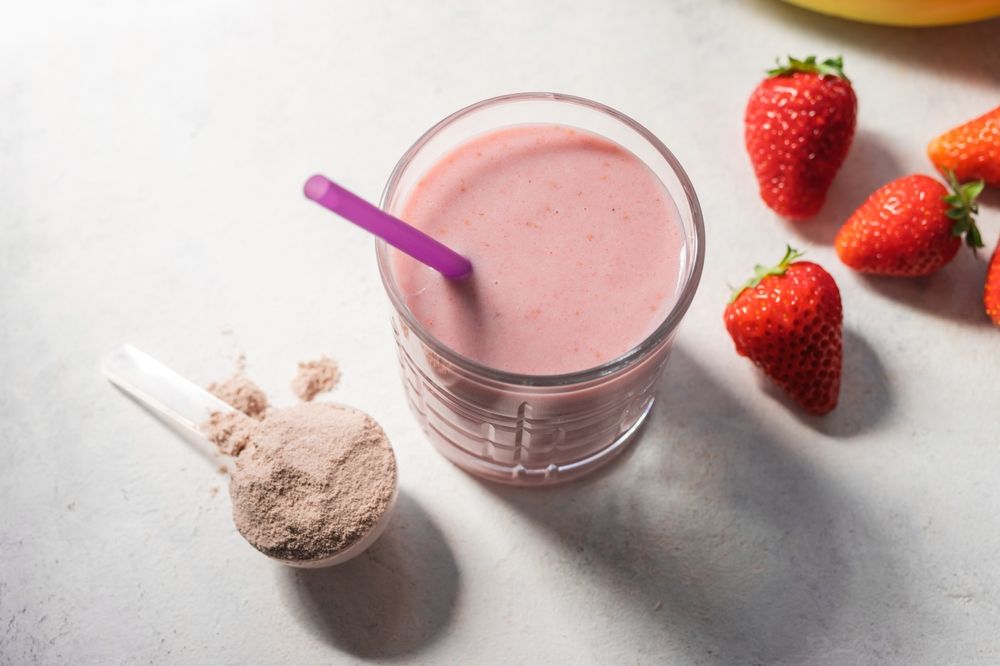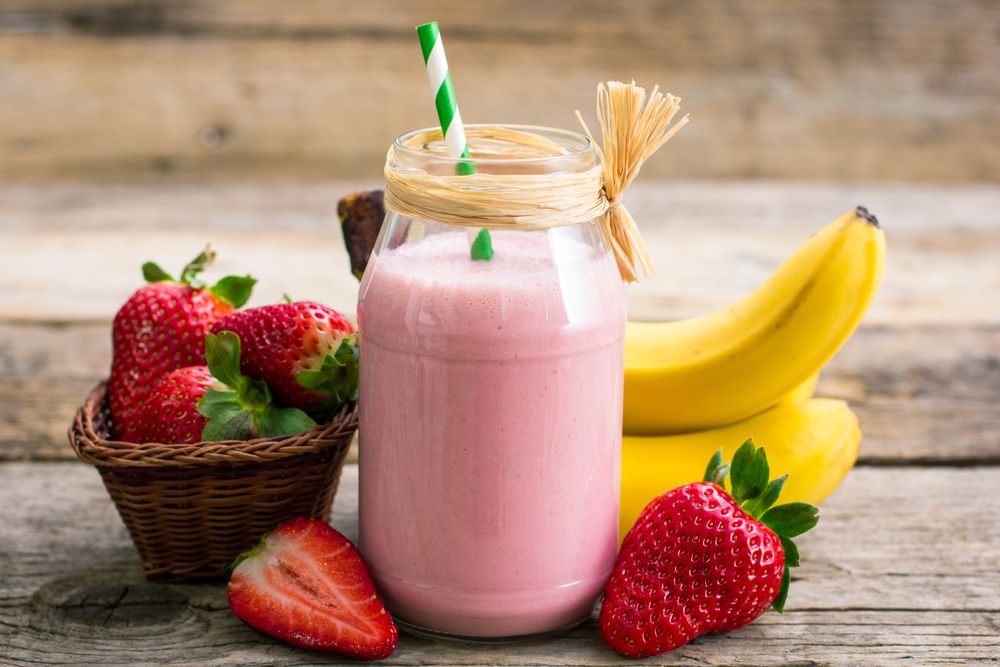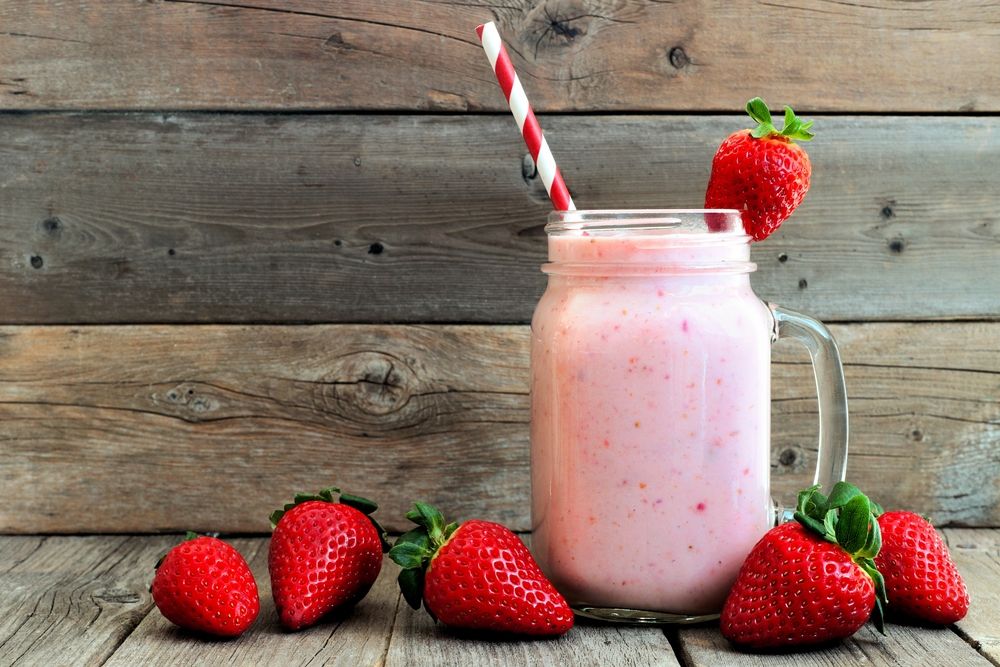
Starting a weight loss journey often requires making several lifestyle changes, from increasing physical activity to adjusting dietary habits. It's common for people to add smoothies or protein shakes to their daily routine as part of their weight management efforts, as these beverages are popular for their convenience, nutritional value, and versatility.
However, choosing between smoothies and protein shakes isn't always straightforward. Each has unique benefits that can support weight management in different ways. Understanding these advantages can help you decide which option aligns best with your specific needs and preferences—or even more importantly, determine which is better for weight loss. Read on to explore the pros and cons of smoothies and protein shakes for weight loss. For more insights, check out Greek Yogurt vs. Cottage Cheese: What's Better for Weight Loss?
Smoothies

Smoothies are blended beverages typically made from a combination of fruits, vegetables, liquids, and other ingredients. Because ingredient combinations and portion sizes can vary widely, it's difficult to make broad statements about their nutritional value. However, they generally offer a balance of macronutrients and nutrient-dense foods that can help support health goals, including weight loss.
Pros
High in Fiber
One of the main advantages of smoothies for weight loss is their fiber content. The whole fruits and vegetables in smoothies retain their fiber, which aids digestion and promotes a feeling of fullness. This can help prevent overeating, making it easier to stick to your calorie goals. Studies have linked higher fiber intake to successful weight management.
Good Source of Satiating Nutrients
In addition to fiber, smoothies can be packed with other satiating nutrients, especially when made with ingredients like leafy greens, fruits with edible skins, and chia seeds. Smoothies can also be an excellent source of protein, a macronutrient known for enhancing feelings of fullness and helping maintain muscle mass, which is crucial for a healthy metabolism. They often contain healthy fats from ingredients like avocados and nut butter, which not only provide sustained energy but also aid in the absorption of fat-soluble vitamins. Including these key nutrients makes smoothies a smart part of a balanced diet, supporting weight loss while maintaining nutritional quality.
Convenient
Smoothies are quick to make and easy to consume, making them an ideal choice for busy individuals trying to incorporate more fruits and vegetables into their diet. Since increasing produce intake is linked to weight loss, smoothies can be an effective tool for those aiming to shed pounds. Simply toss your ingredients into a blender, and you have a nutritious meal or snack in minutes. Their convenience helps maintain healthy eating habits and avoid higher-calorie, less nutritious options.
Easily Customizable
Unlike protein shakes, which often come in limited flavors like vanilla or chocolate, smoothies can be tailored to suit your taste preferences and dietary needs. This flexibility allows people to enjoy their weight loss-friendly smoothies, increasing the likelihood that they'll stick to this healthy habit. Whether you prefer a tropical blend or a green detox mix, the customization options are endless, making it easier to stay satisfied on your weight loss journey.
Cons
Can Be High in Calories
One of the main challenges with smoothies is that they can easily become high in calories, especially if you're not mindful of portion sizes. Some smoothies, depending on the ingredients, can be calorie-dense, which may not align with a calorie-controlled diet. For instance, while bananas are nutrient-rich, adding a whole large banana can contribute 12 grams of sugar and 90 calories. Using half a banana instead can give the same creamy texture while cutting back on calories. Similarly, adding just half of an avocado can introduce 160 calories, making it less ideal for a weight-loss smoothie if you're trying to limit calorie intake.
Can Be High in Sugar
Another downside is the potential for smoothies to be high in sugar, which can negatively impact weight loss. Although natural sugars from fruit are healthier than added sugars, consuming too much can still hinder weight loss efforts. Added sugars, in particular, contribute extra calories without providing essential nutrients. They can also cause rapid spikes in blood sugar followed by sharp drops, which may trigger hunger and lead to overeating. Over time, high sugar consumption can contribute to insulin resistance, making weight loss even more challenging.
Common ingredients like flavored yogurts and sweeteners, such as dates, can add significant amounts of sugar. For instance, one date contains 16 grams of sugar and 65 calories. To keep sugar levels in check and support weight loss, it's important to balance ingredients and avoid adding too many sweeteners or high-sugar fruits.
May Lack Protein
Lastly, some smoothies may lack protein, a vital nutrient for weight loss. Protein helps build and maintain muscle mass and plays a key role in promoting feelings of fullness. Adding protein-rich ingredients like Greek yogurt, nut butter, or protein powder can help balance your smoothie. Similarly, healthy fats are sometimes missing from smoothies, which may reduce their ability to keep you full. Including chia seeds, hemp seeds, or avocado can boost the healthy fat content and increase the satiety factor.
In summary, smoothies can be a nutritious and convenient option for weight loss when carefully balanced with the right ingredients. However, being mindful of calorie and sugar content, as well as ensuring adequate protein and fat, will help you get the most out of this versatile beverage.
Protein Shakes

Protein shakes are a popular choice among fitness enthusiasts and those looking to lose weight while building muscle. Made by mixing protein powder with water or milk, these beverages are often consumed to support muscle recovery and promote growth after exercise.
Pros
High in Protein
One of the main advantages of protein shakes is their high protein content, with many options providing at least 20 grams per serving. Protein is essential for muscle repair and growth, and it can also help with satiety, making it a key component of any weight loss plan that involves exercise. Adequate protein intake can also support a healthy metabolism, improving your body's ability to burn fat.
Convenient
Protein shakes are incredibly convenient. With pre-packaged powders, you can quickly mix up a shake while on the go, making them a perfect option for busy individuals who need a quick, easy meal or snack to support weight loss.
Low in Calories
Many protein shakes are lower in calories compared to smoothies, with some providing as little as 100 calories per serving (though this varies by brand). This makes them a good option for those watching their calorie intake, as they provide a feeling of fullness without adding excessive calories.
Cons
Lack Essential Nutrients
While protein shakes deliver a solid dose of protein, they often lack other essential nutrients such as fiber, healthy fats, vitamins, and minerals that are vital for overall health and weight loss. This means they may be low in calories, but they don't provide the balanced nutrition needed to keep you full and satisfied long-term. It’s important to complement protein shakes with whole foods or a well-rounded diet to ensure all nutritional needs are met.
May Contain Unwanted Ingredients
Not all protein shakes are made with high-quality ingredients. Some commercial protein powders are loaded with artificial flavors, sweeteners, and additives, which may not align with a clean eating approach. While these ingredients don't directly hinder weight loss, it's important to choose products with minimal, natural ingredients. Always check labels and consider healthier options, like the "12 Healthiest Protein Shakes on Grocery Shelves."
Limited Flavor Options
Some people may find the taste or texture of protein shakes unappealing, which can make it harder to stick to a weight loss plan that includes them. Experimenting with different brands, flavors, or ways of preparing them can help you find one that fits your taste.
Smoothies vs. Protein Shakes: Which Is Better for Weight Loss?
In the debate between smoothies and protein shakes, there is no one-size-fits-all solution. The best choice depends on your personal preferences and health goals. If you're aiming for a nutrient-dense option packed with fiber and antioxidants, smoothies are an excellent choice. They're also ideal if you enjoy the taste of fresh fruits and vegetables or struggle to meet your daily intake, as most Americans do, according to the CDC.
On the other hand, if your primary focus is increasing protein intake and supporting muscle growth, protein shakes may be more effective, especially if strength training is part of your weight loss plan.
Both smoothies and protein shakes offer unique benefits and can support your weight loss efforts when incorporated into a healthy lifestyle. By understanding the pros and cons of each, you can tailor your approach to meet your individual needs and preferences.
Remember, the most successful weight loss strategy is one you can maintain long-term. While smoothies and protein shakes can be valuable additions to your routine, it's important to focus on overall dietary balance rather than relying on any single food or beverage. Incorporating a variety of nutrients from different food groups will better support your health and weight loss goals.
Feel free to experiment with both smoothies and protein shakes to see what works best for you. For more personalized advice, consider consulting a dietitian to guide you on your health and wellness journey.

